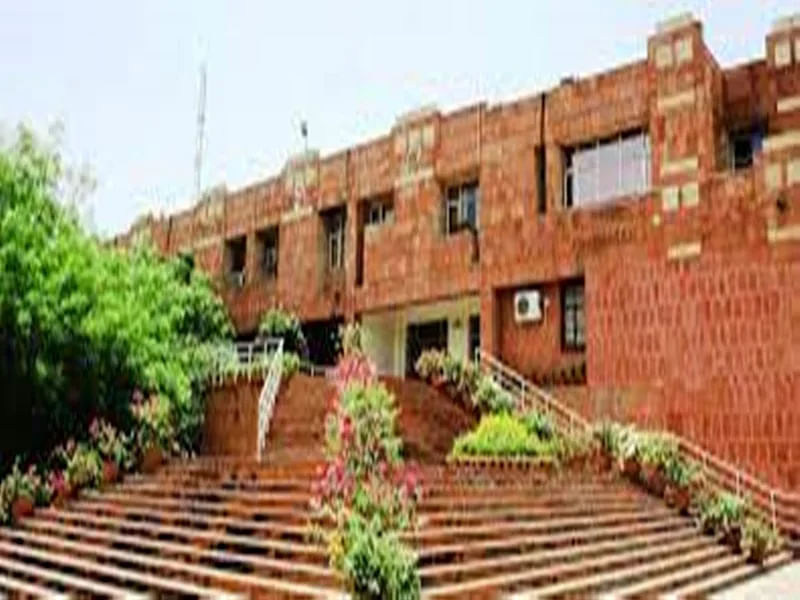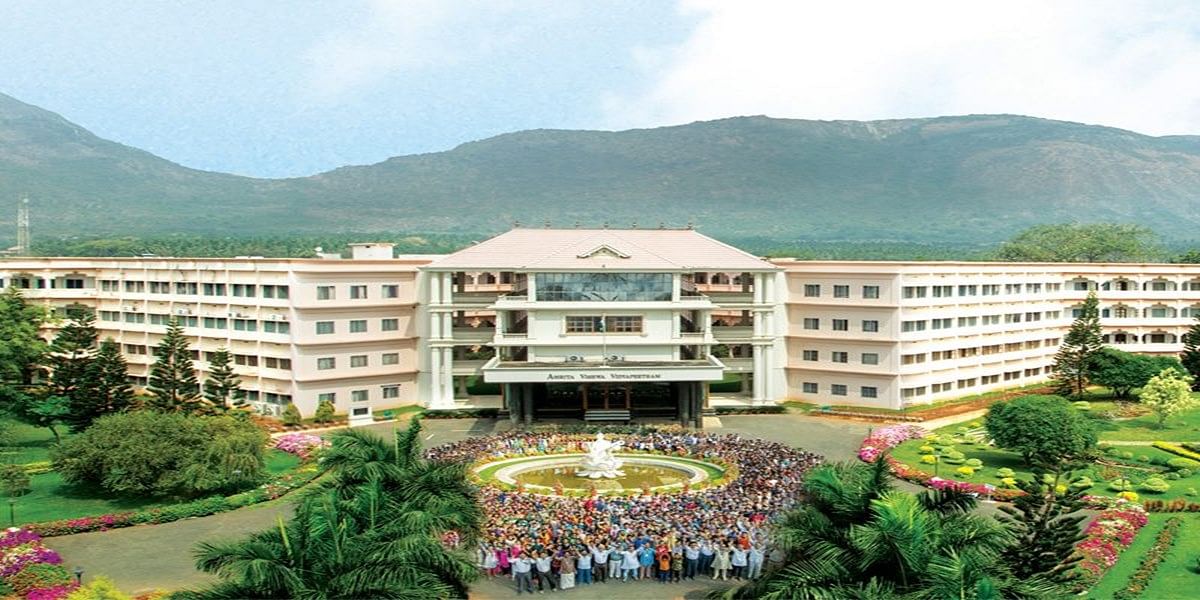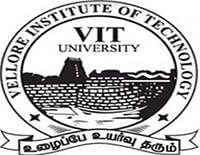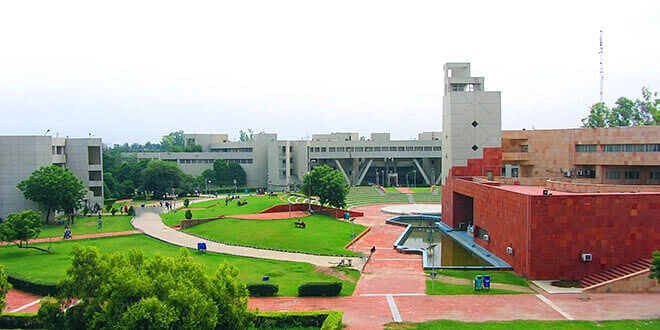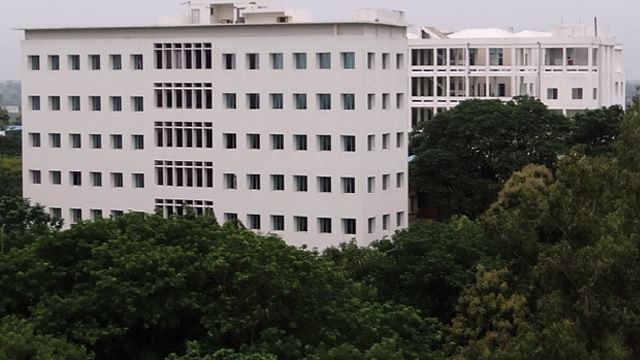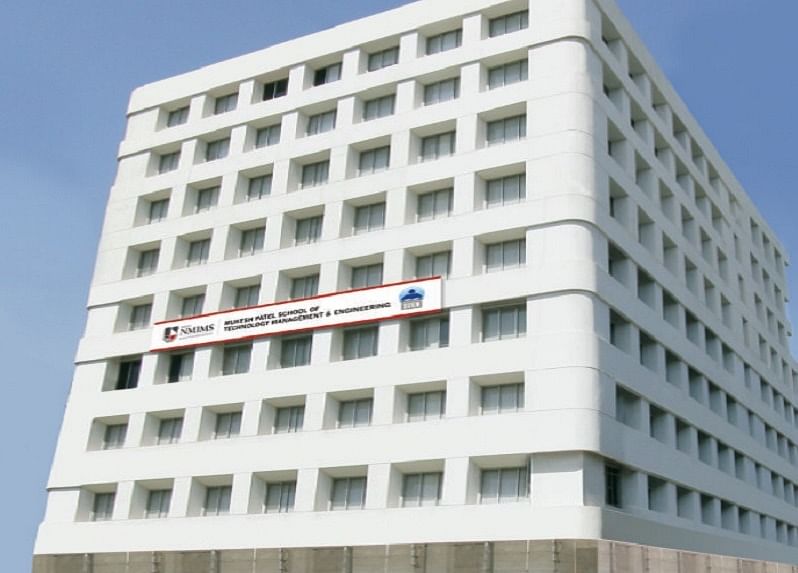B.Tech Computer Engineering Subjects and Syllabus

The B.Tech Computer Engineering syllabus is divided into eight semesters covering important topics such as Programming, Computer Architecture, Software Engineering, Operating Systems, and more. The BTech Computer Engineering course curriculum spans a period of four years offering a combination of core subjects, elective offerings, practical subjects, and projects.
The core B.Tech Computer Engineering subjects include Engineering Mathematics, Computer Organization, System Software, Automata Theory, Data Mining, etc. The elective subjects include topic such as Artificial Intelligence, Software Project Management, IoT, etc.
Table of Contents
Semester-Wise B Tech Computer Engineering Subjects
B.Tech Computer Engineering syllabus focuses on several concepts of computer engineering, primary programming languages & scripting languages, and principles of software engineering along with basic sciences, and technical & professional English. The B Tech Computer Science Engineering syllabus semester wise are listed below:
B Tech Computer Engineering 1st Year Syllabus
The BTech Computer Engineering 1st year syllabus covers fundamental concepts of science and engineering such as Mathematics, Physics, Electrical and Electronics Engineering, Mechanical Engineering, etc.
The topics under Computer Engineering BTech syllabus 1st year are listed below:
| Semester I | Semester II |
| Engineering Mathematics I | Engineering Mathematics II |
| Engineering Physics | Engineering Chemistry |
| Basic Electrical Engineering | Basic Electronics |
| Communication English | Mechanics of Solid |
| Mechanical Engineering | Problem Solving Using Computers |
| Environmental Studies | Engineering Graphics and Design |
| - | Universal Human Values and Professional Ethic |
| Practical/Lab Work | Practical/Lab Work |
B Tech Computer Engineering Practical Subjects 1st Year
The BTech Computer Engineering syllabus includes several practical and lab projects which carry a crucial component in the coursework. Some of the practical topics under the subjects in case Engineering 1st years are listed below:
- Engineering Physics Lab
- Electrical Engineering Lab
- Workshop Practices
- Engineering Chemistry Lab
- Programming Lab
B Tech Computer Engineering 2nd Year Syllabus
The second year Computer Engineering B.Tech syllabus covers topics such as Discrete Mathematics, System Software, Operating System, etc. The table below shows the B.Tech Computer Engineering second-year syllabus:
| Semester III | Semester IV |
| Engineering Mathematics III | Computer Organization |
| Data Structure | System Software |
| Digital Logic Theory | Operating System |
| Analog & Digital Communication | Database Management System |
| Practical/Lab Work | Practical/Lab Work |
B Tech Computer Engineering Practical Subjects 2nd Year
The practical topics under the B.Tech Computer Engineering subjects for the second year are given below:
- Data Structure Lab
- C Programming Lab
- Digital Logic Design Lab
- DBMS Lab
- Linux Lab
- Operating System Lab
B Tech Computer Engineering Subjects 3rd Year
The 3rd year B.Tech Computer Engineering syllabus deals with important topics such as Computer Architecture, Automata Theory, Software Engineering, Embedded System, etc.
The table below shows the B.Tech Computer Engineering subjects for the third year:
| Semester V | Semester VI |
| Computer Architecture | Analysis & Design of Algorithm |
| Automata Theory | Software Engineering |
| Microprocessor | Compiler Design |
| Object Oriented Programming | Embedded System |
| Computer Networks | Parallel Computing |
| Practical/Lab Work | Practical/Lab Work |
B Tech Computer Engineering Practical Subjects 3rd Year
The practical topics under 3rd year B Tech Computer Engineering subjects are listed below:
- Object Oriented Prog. Lab
- Microprocessor Lab
- Computer Network Lab
- Embedded System Lab
- Compiler Lab
B.Tech Computer Engineering 4th Year Syllabus
The B.Tech in Computer Engineering 4th Year Syllabus allows students to select from the elective offerings such as Artificial Intelligence, Software Testing, Network Security, and more.
The table below shows the B.Tech Computer Engineering fourth-year syllabus:
| Semester VII | Semester VIII |
| Data Mining | Natural Language Processing & Information Extraction |
| Mobile Communication / Artificial Intelligence | Software Project Management / BlockChain Technology |
| Internet Technologies / Operation Research | Software Testing / Network Security / Soft Computing |
| Computer Graphics / Cyber Security | Major Project |
| Minor Project | - |
| Practical/Lab Work | Practical/Lab Work |
B Tech Computer Engineering Practical Subjects 4th Year
The practical topics under 4th year B Tech Computer Engineering subjects are listed below:
- Data Mining Lab
- NLP Lab
Note: The structure of the BTech Computer Engineering syllabus can differ in different colleges. Students can access to B.Tech Computer Engineering syllabus PDF at the college website or by inquiring at the college administrative office.
B.Tech Computer Engineering Subjects
BTech Computer Engineering subjects is based on the syllabus recommendations of the AICTE. Therefore, the B.Tech Computer Engineering subjects included in the syllabus of most colleges are similar with slight variations depending on the respective institutes. Listed below are the year wise B.Tech Computer Engineering subjects in detail.
B.Tech Computer Engineering Subjects 1st Year
The BTech Computer Engineering subjects 1st year cover topics such as basic electrical and electronics engineering, programming, file handling, and more.
Below listed are the B.Tech Computer Engineering 1st year subjects and the topics covered under them
| Subjects Covered | Topics Covered | Subject Type |
| Engineering Mathematics-I | Differential Calculus, Integral Calculus, Infinite Series, Analytical Solid Geometry, Rolle's Theorem, Euler's Theorem | Core |
| Engineering Physics | Oscillations, Waves, Optics, Development and Application of Quantum Mechanics, Band Theory of Solids | |
| Basic Electrical Engineering | DC Circuits, Magnetic Circuits, Single Phase AC Circuits, Three Phase AC Circuits, Transformers, Three Phase Induction Motor | |
| Mechanical Engineering | Thermodynamics, Properties of Gases, Internal Combustion Engines, Fluid Mechanics, Fluid Kinematics, Transmission of Motion and Power, Welding | |
| Engineering Mathematics-II | Ordinary Differential Equations, Linear Equations, Laplace Transform, Linear Algebra, Multivariate Calculus | |
| Engineering Chemistry | Electrochemical Changes, Corrosion and Its Control, Fuels, Chemistry of Material Liquid Crystals | |
| Basic Electronics | Analog Electronics, PN Junction Diode, PNP and NPN Transistors, Digital Electronics, Communication Engineering | |
| Mechanics of Solid | Coplanar Concurrent and Non-Concurrent Force System, Centroids and Moment of Inertia, Simple Stresses and Strains, Kinetics of Particles | |
| Problem Solving Using Computers | Programming, Conditional Branching and Loops, Arrays, Function and Recursion, Structure and Pointers, File Handling | |
| Engineering Graphics and Design | Lettering Conventions and Dimensioning Scales, Projection of Points and Straight Lines, Projection of Solids, Orthographic Projection | |
| Communication English | Tense and Concord, Change of Narration, Reading Comprehension and Writing Skill, Precis Writing | |
| Environmental Studies | Environment and Ecosystem, Resources and Conservation, Environmental Pollution and Issues, Human and Environment | |
| Universal Human Values and Professional Ethic | Value Education, Understanding Harmony in the Human Being, in Family & Society, in Nature & Existence | |
| Engineering Physics Lab | Experimental Verification of Resonance, Inertia, Damping Effect, Wave Optics, Quantum Nature of Light, Basic Properties of Semiconductor | Laboratory/Practical |
| Electrical Engineering Lab | DC and AC Circuits Responses and Theorem, Resistances, Inductances, Power, Load Test | |
| Engineering Chemistry Lab | Quantitative Analytes Assessment, Spectrophotometer, pH Meter, Titration Curve, Assessment of Properties of Compounds | |
| Programming Lab | Simple Computational Problems, If-Then-Else Structures, Iterative Problems, 1D Array Manipulation, Recursive Functions, Pointers and Structures, File Operations | |
| Workshop Practices | Carpentry, Plumbing, Fitting, Soldering |
B.Tech Computer Engineering Subjects 2nd Year
The BTech Computer Engineering 2nd year subjects covers important topics such as discreet mathematics, data structures, system software, database management system, and more.
Below listed are the 2nd year Computer Engineering subjects and the topics covered under them.
| Subjects | Topics Covered | Subject Type |
| Engineering Mathematics-III | Algebraic Structures, Graph Theory, Recurrence Relations, Mathematical Techniques, Linear Programming Problems | Core |
| Data Structure | Types, Characteristics, ADT, Algorithms, Stack Operations, Linked Link, Concepts of a Tree, Graph | |
| Digital Logic Theory | Boolean Algebra, Logic Gates, Function Minimization, Combinational Systems, Sequential Systems | |
| Analog & Digital Communication | Signals, Modulation, Radio Transmitters and Receivers, Concept of BW, Information Capacity, Synchronoys and Asynchronous Communication | |
| Computer Organization | Basic Computer Organization, Processing Unit, Memory Subsystem, Input/Output Subsystem, High Performance Processor | |
| System Software | Language Processor, Assembler Design, Macros & Linkers, Linux Commands, Linux Shell Programming | |
| Operating System | Operating System Structures, Process Concept and Scheduling, Memory Management Strategies, Synchronization and Deadlock, File System Interface | |
| Database Management System | Data Model Implementation and E-R Diagram, Normalization and Data Redundancy, SQL, Transaction Management, Emerging Areas in Database and Data Models | |
| Data Structure Lab | Pointers, Structures, Operation of Stacks and Queues, Sorting and Searching Techniques, Creations of Trees | Laboratory/Practical |
| C Programming Lab | Control Statements, Arrays, Classes Objects and Methods, Inheritance, Packages, Generics, Strings | |
| Digital Logic Design Lab | Logic Circuits Using Verilog, Logic Gates, Boolean Algebra Simplification of Expressions using Kmap, SOP & POS Forms, Multilevel NAND, Binary and BCD Counters | |
| DBMS Lab | Designing of DBMS, Relational Database Model, Data Access Queries, Concurrency Control and Recovery | |
| Linux Lab | File Handling, Process Utilities, Networking Commands, System Administration, Shell Scripting | |
| Operating System Lab | Virtual Machines, Process Scheduling, Multithreaded Models, Critical Section Problem, File System Mounting |
B.Tech Computer Engineering Subjects 3rd Year
The BTech Computer Engineering 3rd year subjects includes important subjects such as computer architecture, software engineering, OOP, embedded system, and more.
Below listed are the B.Tech Computer Engineering 3rd Year subjects and topics covered under them.
| Subjects | Topics Covered | Subject Type |
| Computer Architecture | Moor's Law, Classifications of Computer Architecture, Design of Architecture, Hardwired Control Unit Design, Processors and Memory Hierarchy, Parallel Processing | Core |
| Automata Theory | Finite Automata, Regular Expression, Context Free Grammars and Languages, Push Down Automation, Turning Machines & Computability | |
| Microprocessor | Introduction to Basic Microprocessors, Microprocessor Architecture 8086, Assembly Language Programming, Peripheral Devices | |
| Object Oriented Programming | Structured vs Object Oriented Development, OOP using C++, Implementing Polymorphism in C++, Inheritance and Virtual Functions, OOP using JAVA, Exception Handling, Multithreading | |
| Computer Networks | Data Networks, Communication, Data Link, Medium Access Control Sub Layer, Network Layer | |
| Analysis & Design of Algorithm | Algorithm, Recurrences, Divide and Conquer Strategies, Graph Algorithm, Dynamic Programming, String Search Problem | |
| Software Engineering | Software Project Planning, Software Requirement Analysis and Specifications, Design & Software Reliability, Software Testing, Maintenance | |
| Compiler Design | Compiler, Lexical Analysis Phase, Syntax Analysis Phase, Semantic Analysis and Type Checking, Intermediate Code Generation, Code Optimization, Target Code Generation | |
| Embedded System | I/O Processor, Design Technology, Microcontroller, Addressing Modes, Programming of 8051 Timers, Counter Programming, Addressing Modes | |
| Parallel Computing | Parallel System, Distrubuted System, Arithematic Mean Performance, Tomasulo Algorithm, Parallel Algorithms, Parallel Programming | |
| Object Oriented Prog. Lab | Design High-Level Solution Using Functional Abstraction and Imperative Programing Language Constructs, Write, Compile, Execute and Debug a C++ Program | Laboratory/Practical |
| Microprocessor Lab | Microprocess and Interfacing Devices Operation, Microprocessor Application using Assembly Language, 8085/8086 Microprocessor Architecture | |
| Computer Network Lab | UDP Based Client Server Programs, Concurrent TCP Servers, Link State Routing, Distance Vector Routing, Fragmentation, Synchronous Multiplexing | |
| Embedded System Lab | Design Real Time Embedded Systems using RTOS, Analyze Embedded Systems Based on Atom Processor | |
| Compiler Lab | Preliminary Scanning Applications, Identification of Tokens in a given Program, Design of Lexical Analyzer, Design of Parser, Design of Code Generator, Usage of LEX and YACC |
B.Tech Computer Engineering Subjects 4th Year
The B.Tech Computer Engineering subjects 4th year focuses on topics such as data mining, natural language processing, software project management, soft computing, and more.
The fourth year BTech Computer Engineering subjects and the topics covered under them are listed below.
| Subjects | Topics Covered | Subject Type |
| Data Mining | Data Preprocessing, Data Transformation, Association Rule Mining, Attribute Selection Measure, Bagging and Boosting, Cluster Analysis | Core |
| Natural Language Processing & Information Extraction | Text Processing Tasks and Probabilistic Language Models, . Text Classification and Sequence Modelling, Lexical Semantics, Distributional Semantics, Information Extraction | |
| Mobile Communication | Mobile & Cellular Communication Systems, Cellular Geometry, GSM Architecture, CDMA Architecture, GPRS Architecture | Elective |
| Artificial Intelligence | Introduction to AI, Problems, Heuristic Search Techniques, AI, Machine Learning, Game Playing, Learning, NLP, Neural Network | |
| Operation Research | Linear Programming, Transportation Model, Inventory Model, Sequencing & Queuing Theory, CPM, PERT | |
| Computer Graphics | Image Representation, Basic Graphics Pipeline, Basic Raster Graphical Algorithm for 2D Primitives, Transformation, 3D Transformation, Window, View Port, Painter's Algorithm | |
| Cyber Security | Cyber Security Fundamentals, Cyber Attacker Techniques and Motivation, Exploitation, Cyber Law, Related Legislation | |
| Software Project Management | Project Management Concepts, Software Project Planning, Project Economics, Project Control & Closure | |
| Internet Technologies | Basics, Web Application, Multimedia System, Software Freedom, Software Licenses, Privacy and Freedom | |
| BlockChain Technology | Distributed Record Keeping, Basic Distributed Computing, Basic Crypto Primitives, Block Chain 1.0, 2.0, Privacy, Security Issues in Blockchain | |
| Software Testing | Software Quality, Role of Testing, Testing Theory, Control Flow Testing, Requirement Identification, Quality Assurance | |
| Network Security | Private & Public Key Cryptography, Hash Functions, Message Digests, Access Controls, Authentication, Authorisation, Internet Security | |
| Soft Computing | Introduction, Artificial Neural Networks, ANN Learning, Fuzzy Logic, Fuzzy Models, General Algorithm | |
| Data Mining Lab | Write Queries using DMQL, Knowledge Extraction using Data Mining Techniques, Web Mining, Spatial-Temporal Mining | Laboratory/Practical |
| NLP Lab | Synctatic Programming, Pragmatics, Natural Language Generation, Machines Translation, Speech |
B.Tech Computer Engineering Course Structure
B.Tech in Computer Engineering course structure is designed for a periods of 4 years focusing on providing an extensive understanding of foundational and advanced concepts in computer engineering. The B.Tech Computer Engineering course structure can be outlined as follows:
- VIII Semesters
- Core Subjects
- Elective Subjects
- Practicals
- Internships
- Project
B.Tech Computer Engineering Teaching Methodology and Techniques
B.Tech in Computer Engineering teaching methodology includes classroom training, workshop training, practical laboratory training, and detailed study material about the latest technologies and methods. The following are a few teaching techniques for B.Tech in Computer Engineering:
- Lectures
- Laboratory
- Case Studies
- Guest Lectures
- Industrial Visits
- Group Discussions
- Workshops
- Seminars
B.Tech Computer Engineering Projects
The main aim of course projects is to prepare students to work under a time frame in real time. Students can use their academic knowledge and incorporate their innovation & creativity to develop a working model project. Popular B.Tech Computer Engineering projects are given below:
- Secure Wireless Communication Based on Wi-fi Using RSA
- School System Security Using RFID
- E-Authentication System with the Help of QR Code & OTP
- Encrypted SMS System in Android
- Preventing Phishing Attacks Using Visual Cryptography
- Secure File Storage on Cloud by Hybrid Cryptography
- Image Steganography ATM Detail Security
B.Tech Computer Engineering Reference Books
Reference books help students to gain substantial knowledge & insight into several functionalities associated with computer engineering. Listed below are a few reference books for B.Tech Computer Engineering.
B.Tech Computer Engineering Books First Year
The first year B.Tech Computer Engineering books cover foundational concepts such as engineering mathematics, electrical engineering, mechanics, programming, etc.
The 1st year Computer Engineering B.Tech books are given below.
| Books | Author | Topics Covered |
| Advanced Engineering Mathematics | R.K. Jain & S R K Iyengar | Complex Analysis, Fourier Analysis, Laplace and Z-Transforms |
| Basic Electrical Engineering | Abhijit Chakrabarti, Sudipta Nath, and Chandan Chanda | Circuits, Electrical Machines, Power Systems, Electrical Measurements |
| Communication Systems | Simon Haykin | Analog & Digital Communication, Signal Analysis, Information Theory, Communication Networks |
| The C Programming Language | Brian W. Kernighan and Dennis M. Ritchie | Syntax, Pointers, File Handling, Data Structures |
B.Tech Computer Engineering Books Second Year
The B.Tech Computer Engineering second year books cover important topics such as data structures, computer architecture, database management systems,and more.
Below listed are the BTech Computer Engineering books for the second year.
| Books | Author | Topics Covered |
| Discrete Maths and its Applications | K. H. Rosen | Mathematical Logic, Set Theory, Combinatorics, Graph Theory |
| Data Structure and Algorithm | John Beidler | Fundamental Data Structures, Sorting & Searching Algorithms, Advanced Data Structures |
| Computer System Architecture | M. Morris Mano | Basic Computer Organisation, Digital Logic Design, Instruction Set Architecture |
| An Introduction to Database Systems | C.J. Date | Relational Algebra and SQL, Database Design, Database Transactions and Concurrency Control |
B.Tech Computer Engineering Books Third Year
The B.Tech Computer Engineering third year books deal with topics such as embedded systems, automata theory, OOP, and more. Below listed are the BTech Computer Engineering books for the third year syllabus.
| Books | Author | Topics Covered |
| Introduction to Embedded Systems | K.V. Shibu | Embedded Hardware, Embedded Software, Real-time Operating Systems, Embedded System Design |
| An Integrated Approach to Software Engg | Pankaj Jalote | Software Development Lifecycle, Software Process Models, Software Requirement Engineering |
| Object Oriented Programming in C++ | N.Barkakati | Basics of C++, Templates, Memory Management, STL |
| Introduction to Automata Theory Language and Computation | J.E. Hopcroft & J.D. Ullmann | Finite Automata, Turning Machines, Computability Theory, Complexity Theory |
B.Tech Computer Engineering Books Fourth Year
The BTech Computer Engineering fourth year books cover topics such as encryption, natural language processing, soft computing, data processing, and more. The 4th year B.Tech Computer Engineering books are provided in the table below.
| Books | Author | Topics Covered |
| Neural Network Methods in Natural Language Processing | Yoav Goldberg | Neural Network Fundamentals, NLP Basics, Word Embeddings |
| Cryptography and Network Security | Behrouz A Forouzan | Symmetric and Asymmetric Cryptography, Digital Signatures, Network Security Protocols |
| Introduction to Artificial Intelligence | Rajendra Akerkar | Search Algorithms, Knowledge Representation, Machine Learning |
| Data Mining | Han and Kamber | Data Preprocessing, Text & Web Mining, Data Mining Algorithms |
Top B.Tech Computer Engineering Colleges
Top Engineering Entrance Exams
B.Tech Computer Engineering Fee Structure
FAQs on B.Tech Computer Engineering Syllabus and Subjects
Q: What is the 1st year syllabus of B.Tech Computer Engineering?
Q: What are the core subjects in B Tech Computer Engineering?
Q: What are the elective subjects in B Tech Computer Engineering?
Q: How are the students evaluated in the B.Tech Computer Engineering course?
Q: Is there Maths in BTech Computer Engineering?
Q: What is the toughest subjects in B.Tech Computer Engineering?
